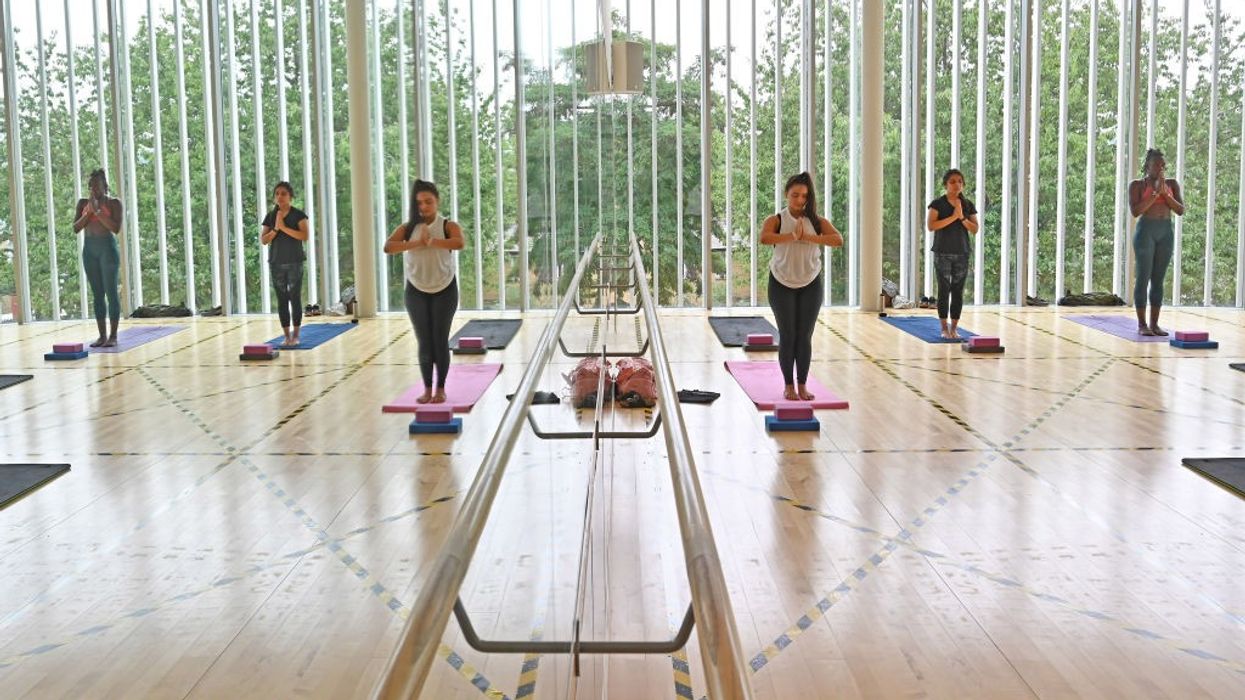Yoga teachers in Britain, many in precarious positions due to the pandemic, have unionised for the first time and created a branch within the body representing self-employed workers, it said.
Most yoga teachers in the country have no job security, no sick pay, no paid leave and no employer pension contributions, according to the Independent Workers' Union of Great Britain (IWGB).
The self-proclaimed organisation for "unorganisable" precarious workers represents self-employed people in numerous trades and industries.
The new branch is the first union for yoga teachers in the UK, and the second globally, following the creation of Unionize Yoga in New York in the US.
There are estimated to be around 10,000 yoga teachers in Britain, and they often work unpaid overtime and are on poverty pay well below living wage while lacking basic workers' rights, the IWGB said.
It noted many also report an "endemic culture" of bullying, harassment and discrimination, and the union is already offering training on responding to and preventing sexual harassment.
"By coming together, organising and raising our collective voice, we are much stronger and have a much greater potential to make real, long-term, positive changes that will benefit us all," said Laura Hancock, chair of the new union branch.
It has already attracted nearly 100 members.
The Covid-19 crisis has heavily impacted yoga teachers, who have been forced to close studios and stop offering classes for prolonged periods of lockdown.
Many in Britain, the hardest hit in Europe by the coronavirus, have been plunged into poverty after they found they were ineligible for government support schemes with strict eligibility criteria.
However, according to IWGB surveys, over 60 per cent of its yoga instructor members earned below the living wage before the pandemic, with some earning as little as £5 ($6.86) an hour including unpaid overtime.
Meanwhile, only 4 per cent reported having employee status and basic protections, and less than a fifth have written contracts of any sort.
"The global yoga industry is worth around £60 billion and much of that wealth is being extracted from underpaid, exploited yoga teachers," said Simran Uppal, an official at the new IWGB branch.
"We're not monks protected by an ashram or a wealthy elite of wellness celebrities. We have to survive just like the other precarious workers in the IWGB and around the world," he added.
The union aims to help precarious workers, in particular those in the "gig economy", such as Uber drivers and app-based delivery service couriers, from advocating for their rights to pursuing legal action.





